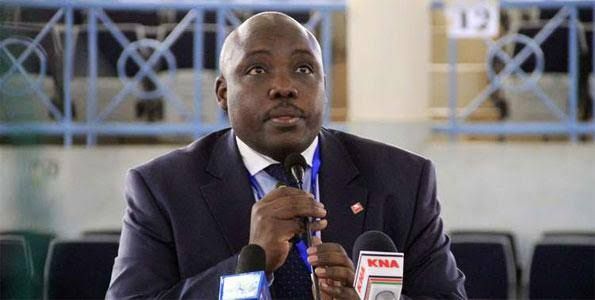Nairobi, August 15, 2023 - The Higher Education Loans Board (HELB) has issued clear directives for the disbursement of funds to more than 2,000 students who have applied for financial assistance but are currently without National Identity cards. This decision aims to ensure efficient and lawful allocation of resources to deserving students.
In an official statement released on Monday, Chief Executive Charles Ringera outlined the organization's approach, emphasizing that funds would be withheld until the students obtain valid identification. During the application process, HELB mandates the submission of both the student's and parents' ID numbers, a crucial aspect for verification purposes.
Ringera emphasized that HELB's actions are bound by legal constraints, as the board is prohibited from extending loans to individuals under the age of 18, as stipulated by prevailing legislation. He underlined the significance of possessing a valid ID, particularly during the repayment phase of the loan.
"The ID is a vital tool for confirming the student's identity, especially during the loan repayment process," Ringera explained.
Addressing the concerned students, the CEO encouraged them to initiate the application process, offering reassurance that the organization has ample resources to accommodate their educational requirements. He expressed optimism in the newly implemented funding model, asserting that its introduction is well-timed to ensure equitable access to essential educational resources.
Ringera further elaborated on a pivotal alteration in the funding framework, stating that students who opt to change their courses or transfer to different institutions can retain access to their allocated funds. This approach marks a departure from previous procedures, reflecting a more student-centric approach.
"This is a student-centered model, and the funds will follow the student," the CEO affirmed.
Looking ahead, Ringera projected that by the year 2028, HELB would have disbursed an estimated Ksh210 billion (comprising Ksh145 billion for loans and Ksh75 billion for scholarships) to support students within the ambit of the new funding model.
As Kenya prepares for the enrollment of approximately 285,698 students in higher learning institutions this September, the Chief Executive emphatically asserted that all eligible students would be accommodated, unequivocally dispelling any concerns about potential exclusions. Under the new funding paradigm, students are categorized into four groups based on their levels of need: vulnerable, extremely needy, needy, and less needy.
Ringera affirmed that the government's financial allocation would be evenly distributed among these student categories, assuring fairness and equal treatment for all recipients. This proactive approach by HELB seeks to underscore the organization's commitment to supporting educational aspirations and fostering a level playing field for students across the nation.

